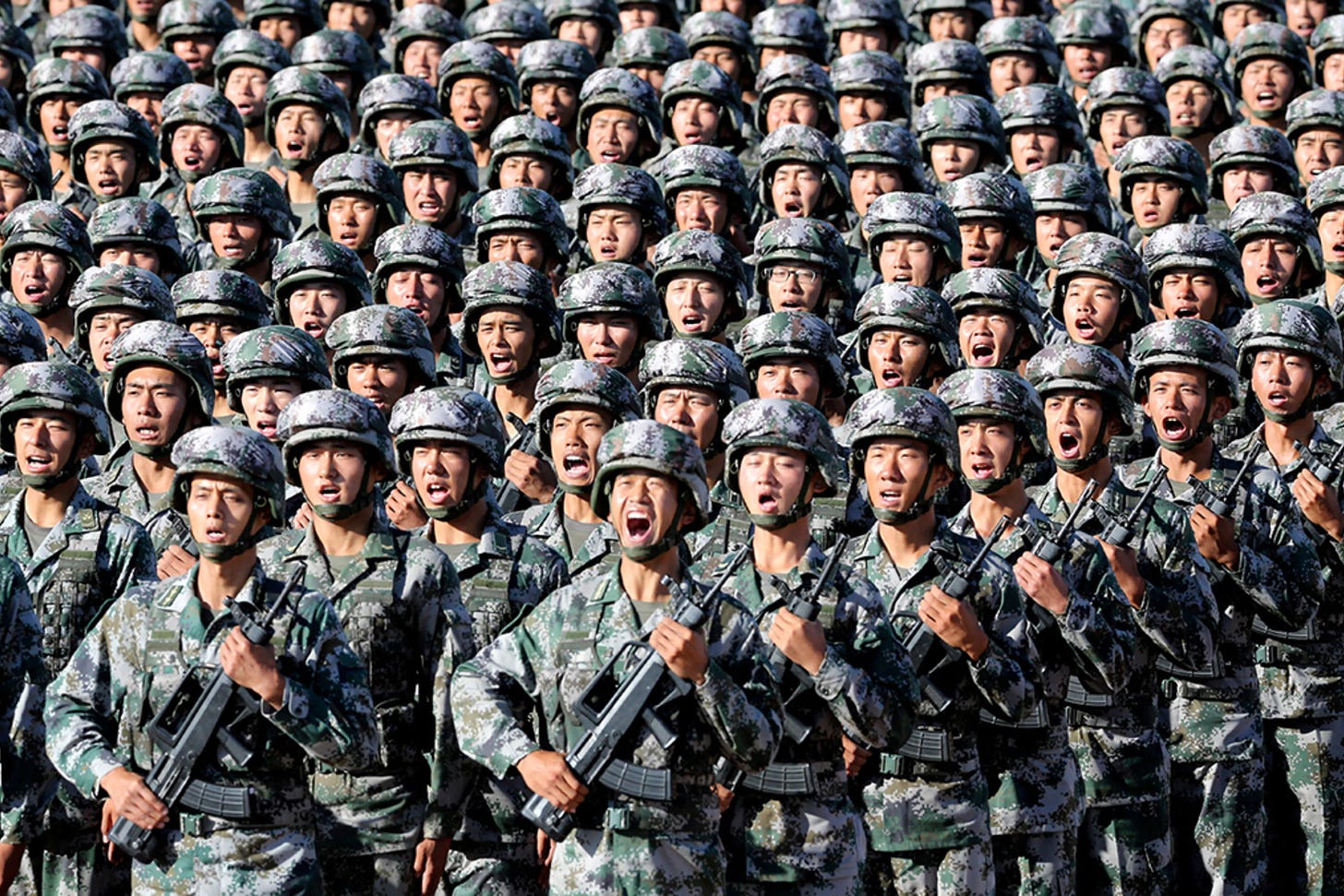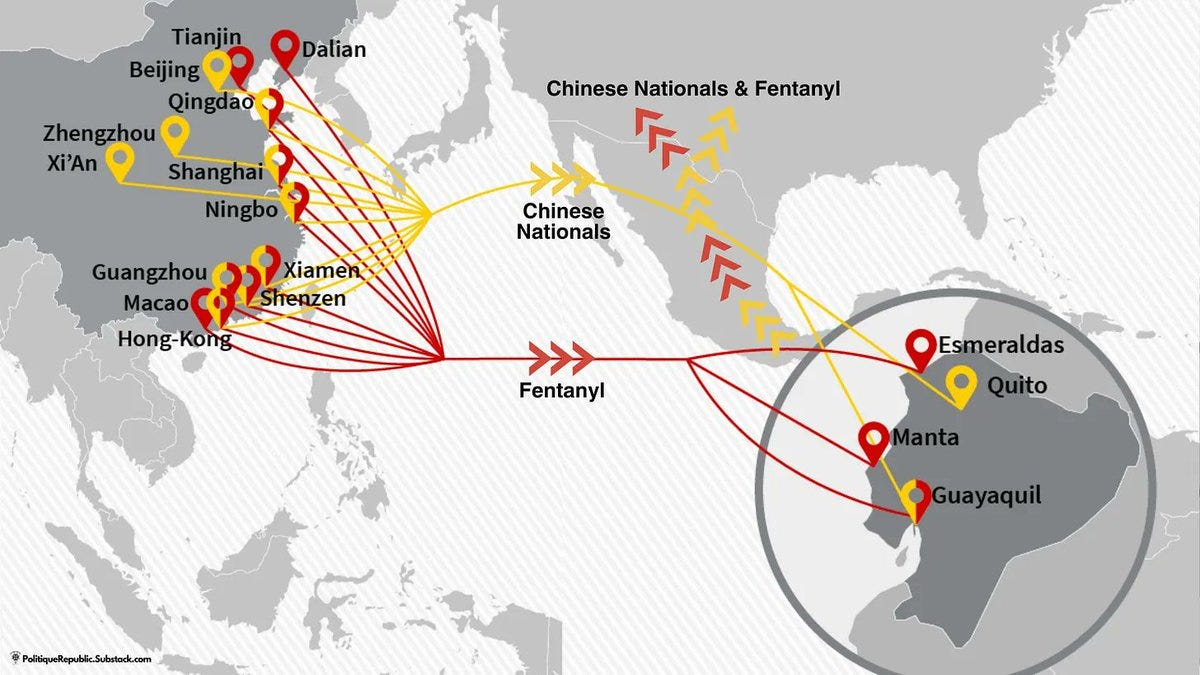The surge of Chinese nationals illegally crossing the southern border has taken on alarming dimensions, underscoring the vulnerabilities caused by the Biden regime’s open border policy. Hundreds of thousands of military-aged Chinese men have entered the United States, according to estimates from border security experts and reports highlighted by agencies like Customs and Border Protection, with estimates ranging from 400,000 to over 1,000,000 individuals. Many believe this influx to be the foundation of a modern terracotta army assembled on American soil?
The logistics behind this migration are staggering. Chinese nationals are traveling to hubs like Ecuador before traversing cartel-controlled routes into the United States. Such journeys, often costing over $30,000, prompt the question: who is underwriting these operations? China’s surveillance state, with its exhaustive controls, would hardly permit such movements without absolute complicity. Are these migrants fleeing desperation, or are they part of a deliberate strategy by the Chinese Communist Party (CCP)?
The CCP’s penchant for exploiting America’s weaknesses is no secret. From fentanyl smuggling networks to clandestine police outposts within the U.S., Beijing has displayed an unnerving aptitude for leveraging asymmetrical tactics. The mass migration of Chinese nationals appears consistent with this modus operandi, suggesting a broader strategy to infiltrate and destabilize. Reports of CCP-aligned "aid stations" and unofficial "police stations" already operating domestically have been documented in investigations by organizations such as Safeguard Defenders and corroborated by the FBI, including recent actions by the Department of Justice to shut down such operations in cities like Houston and New York. These operations, allegedly used to intimidate dissidents and collect intelligence, further fuel these concerns. Such networks, ostensibly established to monitor expatriates, could be weaponized for more sinister objectives should tensions escalate—especially in the event of a Taiwan conflict.
Recent revelations from Alhambra, California, only deepen these suspicions. A U.S. Navy recruitment office staffed entirely by Chinese individuals, speaking exclusively in Mandarin, was brought to light through a video recorded by a Chinese-language YouTuber. The recruiter in question prominently listed his WeChat ID—a platform under CCP control—as a primary contact. This raises serious questions about data security, allegiance, and oversight. How many such recruitment offices exist across the country, and how many Chinese nationals have been enlisted into the military through these channels? Compounding these concerns is another disturbing video featuring Staff Sergeant Max Zhang, who openly declared that he would desert the military if the United States were to go to war with China. This candid admission exemplifies the potential risk of divided loyalties among such recruits. In a geopolitical crisis, could such individuals become liabilities or worse?
China’s ability to manipulate its expatriates through coercion and threats to family members back home is well-documented. Numerous cases have surfaced, including reports of Chinese dissidents in the U.S. being contacted by CCP operatives who threatened their relatives still in China if they failed to comply with demands for surveillance or other actions. For instance, in 2020, the FBI detailed operations where Chinese officials coerced individuals to return to China under "Operation Fox Hunt," leveraging fear of harm to family members as a primary tactic. This leverage transforms seemingly innocent migration patterns into potential national security crises. The specter of espionage, sabotage, and subversion looms large if Beijing indeed orchestrates these movements. American history offers precedents—from Soviet espionage during the Cold War to Japanese internment during World War II—highlighting the dangers of underestimating foreign influence.
The Trump team must confront this emerging threat with the urgency it demands, drawing lessons from historical precedents like Cold War-era counter-espionage measures and contemporary actions against terrorist networks. Policies that proved effective in mitigating Soviet infiltration, such as comprehensive background checks, enhanced vetting procedures, and coordinated interagency intelligence sharing, could serve as a blueprint. Simultaneously, leveraging technological advancements to track and disrupt CCP-aligned networks, much like the dismantling of international terrorism financing systems post-9/11, could provide a modern framework for addressing this multifaceted challenge. First, an exhaustive investigation must account for the number of Chinese nationals who entered under Biden’s watch and their current status within the country. Additionally, the military requires a thorough audit to identify Chinese nationals within its ranks and scrutinize recruitment processes reliant on platforms like WeChat. Efforts must extend to dismantling CCP-linked aid stations and police outposts operating on American soil, addressing these blatant violations of sovereignty with legal and diplomatic resolve. Simultaneously, fortifying the southern border by completing the wall andChina’s Trojan Horse: Military-Aged Migrants and America’s Vulnerabilities with enhanced surveillance and targeted interdiction measures is imperative.
Public awareness also plays a critical role in mitigating this threat. Americans must grasp the CCP’s capacity to exploit migration as a weapon of influence. This knowledge is vital to resisting complacency and fostering support for decisive policy action.
The stakes could not be higher. The Biden administration’s apparent indifference jeopardizes the nation’s security, leaving the United States vulnerable to Beijing’s maneuvers. The infiltration of military-aged Chinese men, coupled with the CCP’s proven ability to wield expatriates as tools of subversion, demands immediate attention. As America faces escalating tensions with China, the possibility of internal sabotage poses a chilling reality. The Trump administration must act decisively to ensure that a modern terracotta army does not quietly take shape within our borders, threatening the sovereignty, security, and survival of the nation.
If you don't already, please follow me on 𝕏 at https://x.com/amuse or medium .






